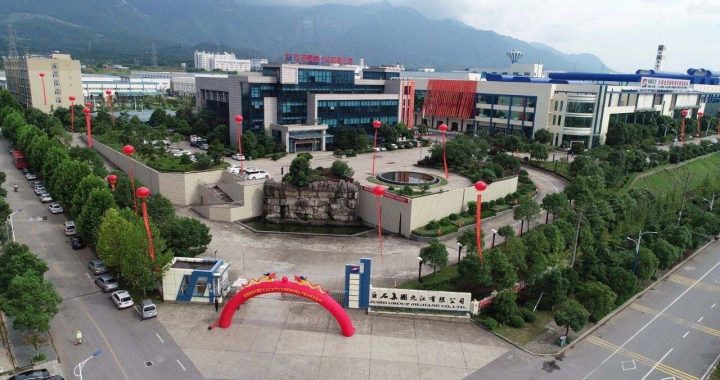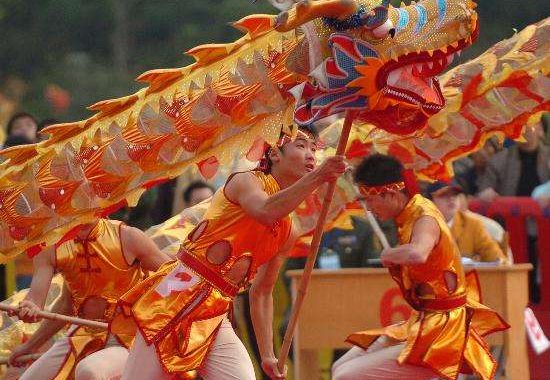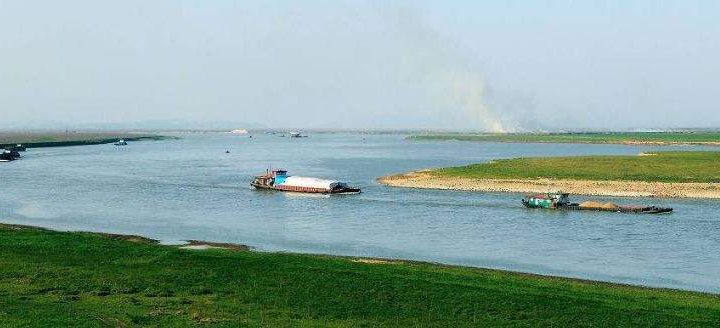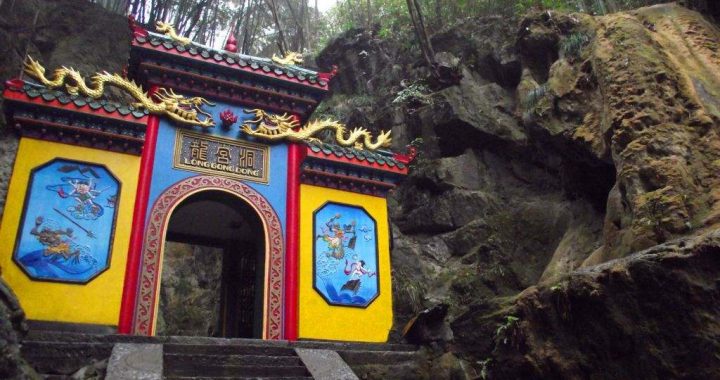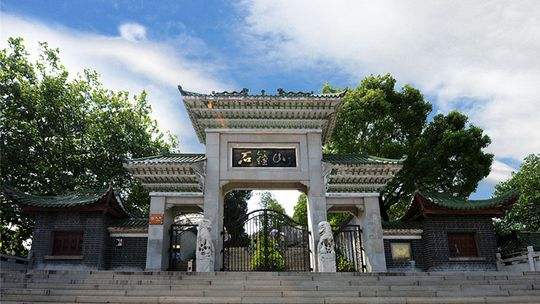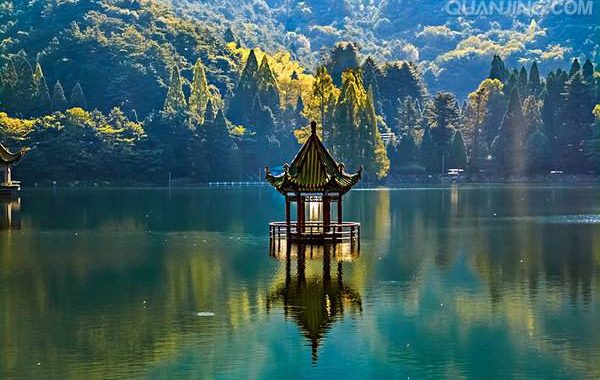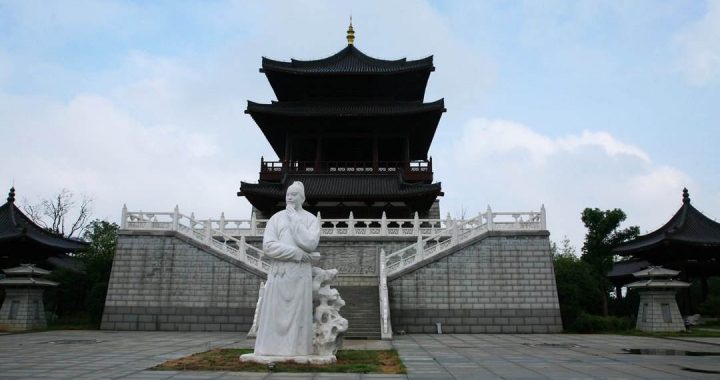Lushan Mountain
5 min read“From the eastern hedge,I pluck chrysanthemum flowers,and idly look towards the southern Mountains.”How much poets’yearn and nostalgia the spectacular Lushan inspires!Those wonderful poems were the interior monologues of the poets who felt as if they were in the fairyland.There are grotesque rocks of various shapes,and the view from Lushan Mountain is misty and cloud-enshrouded.Seeing all these,one may ask,”Where has Tao Qian gone?Is it true that he could till fields of Peach Blossom soils?”
In fact in the geochronology,the area of Lushan Mountain was still a vast ocean.As time passed and great changes occurred,the sea eventually withdrew from this area.The Lushan Mountain was first formed not very high,and later also experienced much erosion and wash off by the sea water.However,the Yanshan Movement of 70 million years ago changed Lushan Mountain greatly.

Pressed by many vertical and horizontal forces,Lushan Mountain was forced to “grow”continuously; in addition, because of the fracturing there are many faults around, so Lushan Mountain has many grotesque peaks and spectacu-lar scenic spots. Among the mountains, there are valleys with roaring waterfalls and green deep pools. The Lushan Mountain we see today is of a northeast-southwest direc-tion and 1,474 meters high. In its bordering area with the Yangtze River is Poyang Lake, and Chairman Mao Ze-dong’s poem wrote:”A mountain towers over the Great River as if to fly, Towards its green crest you have to over-leap 400 twists”, which was referring to Lushan Mountain and Poyang Lake.
There are three versions about the origin of its name “Lushan Mountain”.
The first version is that in the Zhou dynasty (1046BC-256 BC), the emperor of Zhou heard that a Misternamed Kuang Su lived in the mountain who practiced Taoism in an attempt to be an immortal; intending to in-vite Mister Kuang Su to assist him, the emperor went to visit him for many times. However, Mister Kuang Su, un-Lushan Mountain on the bank of the Yangtze River willing to take part in the earthly world again, avoided the emperor. At last, he even went into the deep mountain and didn’t come out any more. From then on, no one had seen Mister Kuang Su again. People all said that he became an immortal, so they called the mountain in which Mister Kuang Su had practiced”Shenxian-Zhi-Lu”(“Cottage of the Immortal”), ie. Lushan Mountain, and also called itKuangshan Mountain, Kuanglu Mountain. The ruler of theSong dynasty (960-1279), Zhao Kuangyin (in whose name there is the word”kuang”, which also appears in”Kuang-shan”and”Kuanglu”), changed its name into Kangshan Mountain because of the practice in feudal times of avoid-ing the taboo of uttering the personal name of the emperor, in order to safeguard the dignity of the hierarchy. The second version is that in the Zhou dynasty(960-1279), Mister Fang Fu and Lao Tzu(Li Er) rode on white donkeys into the mountain to make pills of immortality. Later, the two became immortals and went up to the heav-enly world, with an empty cottage (in Chinese called”lu”) left in the mountain. In order to commemorate them, peo-ple named this mountain Lushan Mountain. There were al-so some people who named the mountain after the name of Fang Fu and called it Fushan Mountain.
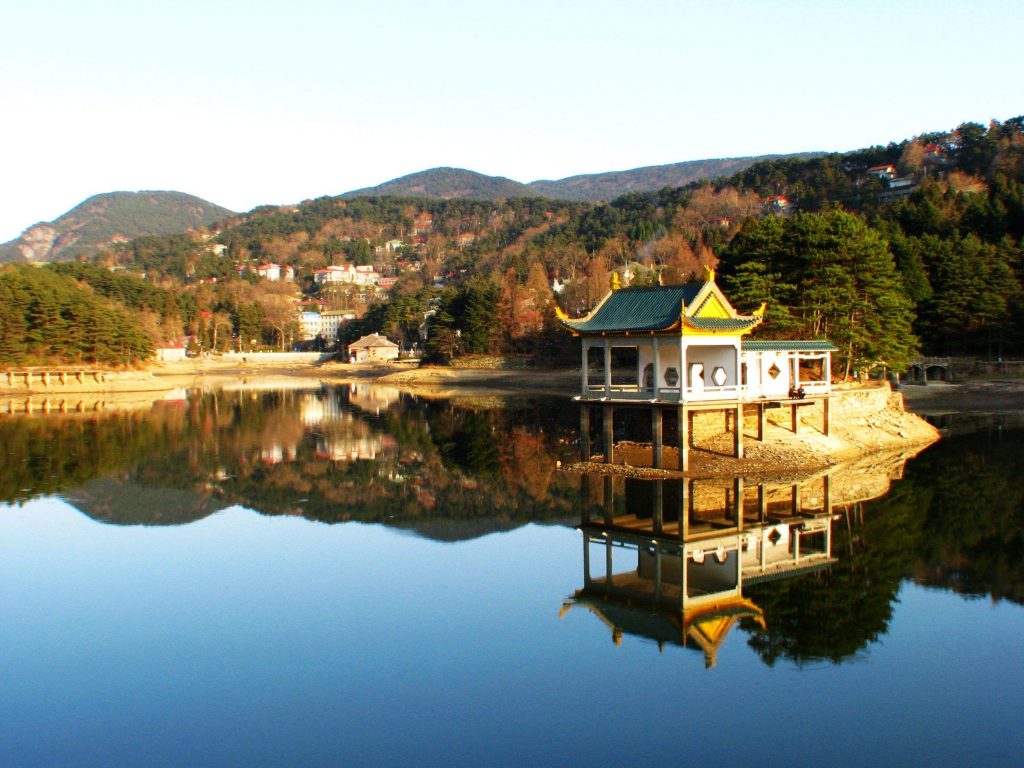
The protagonist of the third version is still Mister Kuang Su, but with a different background. It is said thatKuang Su’s father assisted Liu Bei in contending for the throne, but unfortunately died in a battle. Liu Bei, thinkingof his contributions, granted the title of”Yuelu-Jun”to his son Kuang Su. And Kuang Su had seven brothers, who were all engaged in Taoism. The brothers together went to the huge mountain beside Dongting Lake to practice Tao-ism and lived in a straw cottage (“lu”in Chinese). There-fore, people called the mountain Lushan Mountain.
Lushan Mountain in legends all has a strong flavor of religion. Many legends narrated the story that somebody practiced Taoism or made pills of immortality in Lushan Mountain and became immortals. After Buddhism was in-troduced into China, Lushan Mountain also became one of the Buddhist Holy Places in China. In the prime time, there were more than 300 Buddhist temples and more than 200 Taoist Temples in Lushan Mountain. In the Eastern Jin dynasty (317-420), the Donglin Temple here was very famous;a poem written by Bai Juyi, the famous poet in the Tang dynasty (618-907), was depicting the peach blossom in Donglin Temple:”In April the fragrance of flowersleaves the mundane world, At this mountain temple the peach has barely begun to bloom. Long did I regret spring’s departure, nowhere to be found, Little knowing that here is where she has turned around.”
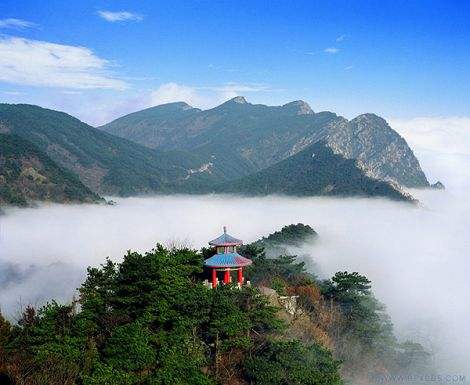
Not only Taoism and Buddhism, but also Christiani-ty, Islamism and Catholicism which were introduced intoChina from the west after Ming and Qing dynasties alsoset up churches or mosques in Lushan Mountain, thus ap-pearing the rare situation that five religions coexisted in one mountain.
Besides religions, Lushan Mountain is also the holy land of Chinese culture and education. The Bailudong A-cademy in Lushan Mountain, together with Yuelu Acade-my in Hunan province, Suiyang Academy and Songyang Academy in Henan province, were the Four Great A-cademies in China. It is said that an official of the Tang dynasty(618-907) used to study in Lushan Mountain. He was a man with personal integrity and noble character, and was always followed by a white deer with nimbus. People addressed him Mister Bailu(“White Deer”) respectfully and called the place he had studied “Bailudong”. After the restoration by Zhu Xi, the famous ratio-nalist in the Southern Song dynasty (1127-1279), Bailudong Academy be-gan to gain great reputation. Throughout the ages, countless beautiful writings and treasured scrolls of calligraphy of scholars have left in the Lushan Mountain! Tao Yuanmingof the Eastern Jin dynasty, Xie Lingyun of the Southern dynasty, Li Bai, Meng Haoran, Bai Juyi of the Tang dy-nasty, Fan Zhongyan, Ouyang Xiu, Su Shi, Wang Anshi and Huang Tingjian of the Northern Song dynasty, and Lu You of the Southern Song dynasty… Many scholars also lived in seclusion here, and Lushan Mountain became thecradle of landscape poems. The scholars’ lingering there was all due to the striking beauty of Lushan Mountain sceneries.
The scenery here is beautiful; however, the products of Lushan Mountain are even better. The Yunwu Tea pro-duced in Lushan Mountain is one of the ten most famous Chinese teas, gaining its name from the scenery that Lushan Mountain is enveloped in clouds all day long.
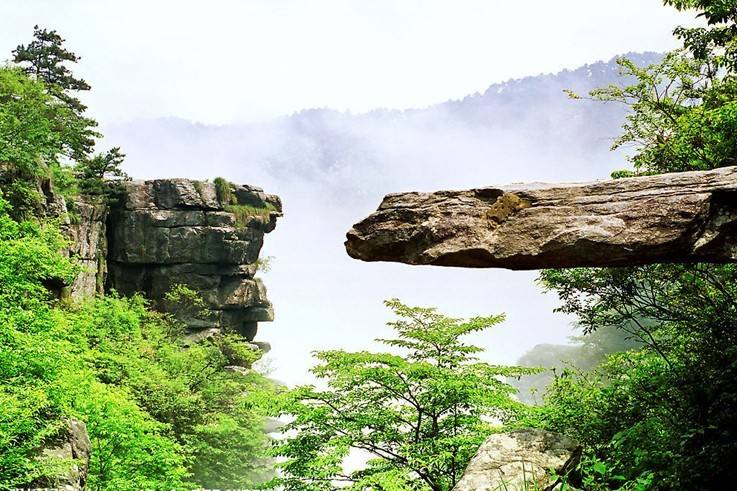
Yunwu Tea is famous for its “green in color, flagrant inaroma, mellow in taste and limpid in appearance”. The tea in the cup is like light-colored jade, and a sip of it brings you fragrance and a refreshing feeling.A legend says that one day the Monkey King Sun Wukong wanted to have a taste of the celestial tea that drank by Jade Emperor and Queen Mother of the Western Heavens, so he requested the celestial bird to help him pick some teas. However, on its way back to Huaguo Mountain(where Monkey King lived) with the tea seed in its beaks, the celestial bird was enchanted by the beauty of Lushan Mountain and couldn’t help singing. With its beaks open, the tea seeds dropped into the crevices of Lushan Mountain. From then on, the tea trees began to grow in Lushan Mountain and there came the Yunwu Tea.
